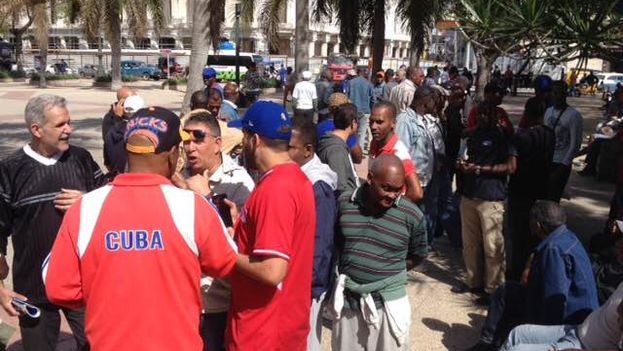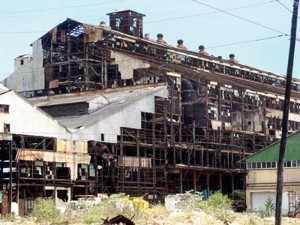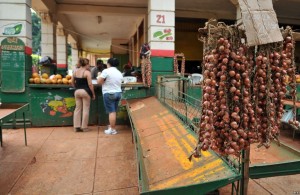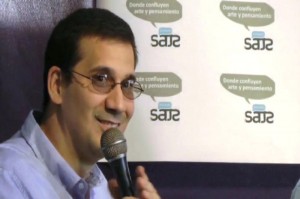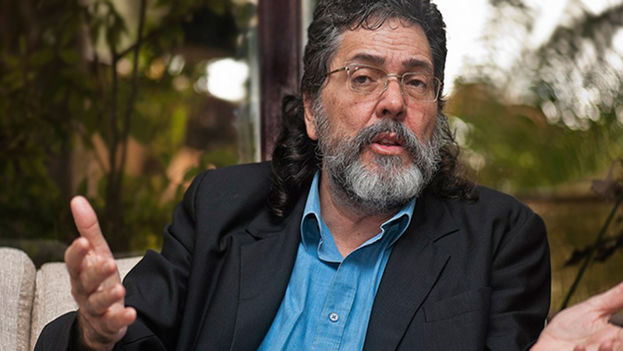
![]() 14ymedio, Ernesto Santana, Havana, 11 July 2016 — At the end of his first stint as Minister of Culture (1997-2012), comments were frequently heard about Abel Prieto’s desire to leave the job. The most practical said it was due to illness, the most romantic claimed he wanted to devote himself to writing.
14ymedio, Ernesto Santana, Havana, 11 July 2016 — At the end of his first stint as Minister of Culture (1997-2012), comments were frequently heard about Abel Prieto’s desire to leave the job. The most practical said it was due to illness, the most romantic claimed he wanted to devote himself to writing.
Now comes his second stint, and although he holds the job “provisionally,” many artists and intellectuals are already pleased because, to them, Abelito is a good person and they prefer a minister from the profession versus a simple political cadre.
Others, free from these superstitions, consider Prieto more dangerous than Armando Hart and Julian Gonzalez put together, given the great energy and fangs he demonstrated last year in command of the “rapid response brigade” – self-proclaimed as “the real Cuban civil society” – that stormed the Summit of the Americas in Panama to block the peaceful participation of the “anti-Cuban mercenaries.” continue reading
This advisor to Raul Castro has devoted himself in recent years to emphatically warning us about the advances of bad taste, the sexism of the barracks, the lack of ideas and other trashy behaviors, defining them as cultural dangers against our identity and our nation, emanating, of course, from the capitalist hell.
The announcement that Julian Gonzales was “released from the job” was made on Friday the 8th at the end of the Second Plenum of the Cuban Communist Party Central Committee, before the plenary session of the National Assembly of People’s Power. Not only was no reason given for such a sudden “release” but not time was taken to do anything more than designate Prieto as provisional minister, with the official media not mentioning the issue since then.
Prieto returns to the franchise that made him a superstar in the Revolution’s show business, but between the two stints he has been a player in significant media performances, like that of the Panama skirmish, with declarations that, if not for his desperate shamelessness, would seem like drunken jokes in game of dominos or crazy antics in the street. For example, he claimed that the Cuban government cannot legalize opposition organizations for the same reason that “Al Qaeda could not be legally registered as an association,” because, in fact, if opposition members weren’t Cubans, “they would be in cages in Guantanamo.”
He also appeared in the recent forum Culture and Nation: the Mystery of Cuba, a miniseries hastily made to counteract the enthusiasm left by the assault – brazenly starring himself – of the US president, and called for a house-by-house fumigation. The “Mystery of Obama” made clear the obsolescence of the Castro catechism, the uselessness of half a century’s anti-Yankee screaming and the poor market for the package of stories about the bogeyman who steals children.
Alarms sounded. Hysteria ensued. Abel Prieto talked about the “cultural and symbolic war,” about the problem of telling the story in “a world where entertainment, pleasure, fragmentation, amnesia, the worship of now, have been turned into pillars of the cultural hegemony industry,” while erecting the cross of “efficient socialism, de-bureaucratized, democratic, that we are creating” (sic).
We imagine his concern as a democratic socialist on talking with people about “open communication with the United States” and finding “innocence, excessive optimism, forgetfulness, childish and uncritical admiration by the superpower and, in some cases, uncontrollable desires to abandon their principles to surrender themselves to arms of Satan.”
Thus, we must put an end to the fallacy that associates “Yankee” with “modern” and with “development,” because “this Yankeephilia idealization is one of the tendencies we must confront in the war of ideas and values that must be fought.”
In the forum mentioned above, Abel Prieto proposed students be ‘vaccinated’ not with Soviet cartoons or Randy Alonso, but as tourist guides with Yankee trash like Oliver Stone and Michael Moore. Also House of Cards would serve as an antidote. And South Park should also be included. And it’s too bad that Noam Chomsky has not made entertaining tapes of his unsurpassed diatribes against his own country.
As for the inevitable “academic exchange with the United States” we have to swallow the mix of “very clear principles” in order to “avoid the glare and small-town positions.” Prieto also warned about the attempt to “foment an enemy fifth column of a new kind, with well-designed and conceived digital publications, social-democratic or ‘centrist’ ornamentation and verbiage full of euphemisms,” all this financed from abroad “in the face of the discredited traditional counterrevolution.”
Although he had to recognize that the new technologies are not to blame, he again hammered home that they serve “as a conduit and catalyst for the avalanche of disintegrating forces,” ones that deny the role of governmental institutions without which “the cultural environment would become a jungle and mediocrity would gain an irreversible preponderance.”
Referring to young people – those who launch themselves on the sea, or go to prison or to the purgatory of the streets – Prieto wants to make us believe, in all seriousness, that we must “feel and live the Revolution in all its historic journey, with passion and depth, and at the same time feeling and living and defending its continuity as the only guarantee of having a country, of having dignity.”
As the press note on the “release” of Julian Gonzalez Toledo contained no more information than the traditional tagline that he has been “assigned other tasks,” the traditional range of speculation immediately arose, including the idea of a supposed campaign to deprive first vice-president Miguel Diaz-Canel of the cronies who support his clinging to power.
There is another speculation that could have a certain logic. When Julian Gonzalez replaced then Minister of Culture Rafael Bernal Alemany in 2014, it transpired that the latter was ousted because of the outrageous theft of hundreds of pieces of art from the Museo de Bellas Artes, some of which later appeared in Miami. Now, although Gonzalez Toledo is considered “a hard-working and honest functionary,” his superiors are not content with his “lack of leadership,” mentioning again the specter of corruption.
Moreover, there are those who relate this fall to several money scandals featuring the president of the Cuban Music Institute, Orlando Vistel, and other predators of the cultural jungle. But, naturally, there is no official statement that clarifies the matter and reports on it as they should, because making the truth known continues to be seen as giving arms to the enemy.
We Cubans only need the scrapings from Abel Prieto’s brain, as he calls us to “build a digital socialism,” as he reminds us that “the main force for democratization of the new technologies in Cuba, and I believe in the world, is Fidel,” while warning that the market is a “much more terrible [censor] than the worst that existed in the time of Stalin.”
If second acts are never a good thing, in this case the first one wasn’t either. This second stint, however brief it might be and whether we like it or not, comes to save us from Uncle Sam’s cultural poison. Meanwhile, the local chupatintas (pencil-pushers) will continue to protect us from the tropical chupi chupi, from the national vulgarity and the empire’s chupacabras – that mythic animal that wants to suck our blood.
See also:
Abel Prieto Attacks The “Packet” and “Technological Nomadism” / 14ymedio, Rosa Lopez
Abel Prieto’s Travels / Orlando Luis Pardo Lazo
So Long Minister of Culture Abel Prieto / Yoani Sánchez
El Chupi Chupi and the Dilemma of Limits / Yoani Sánchez
Vulgarity as a Resource (I) / Miriam Celaya

